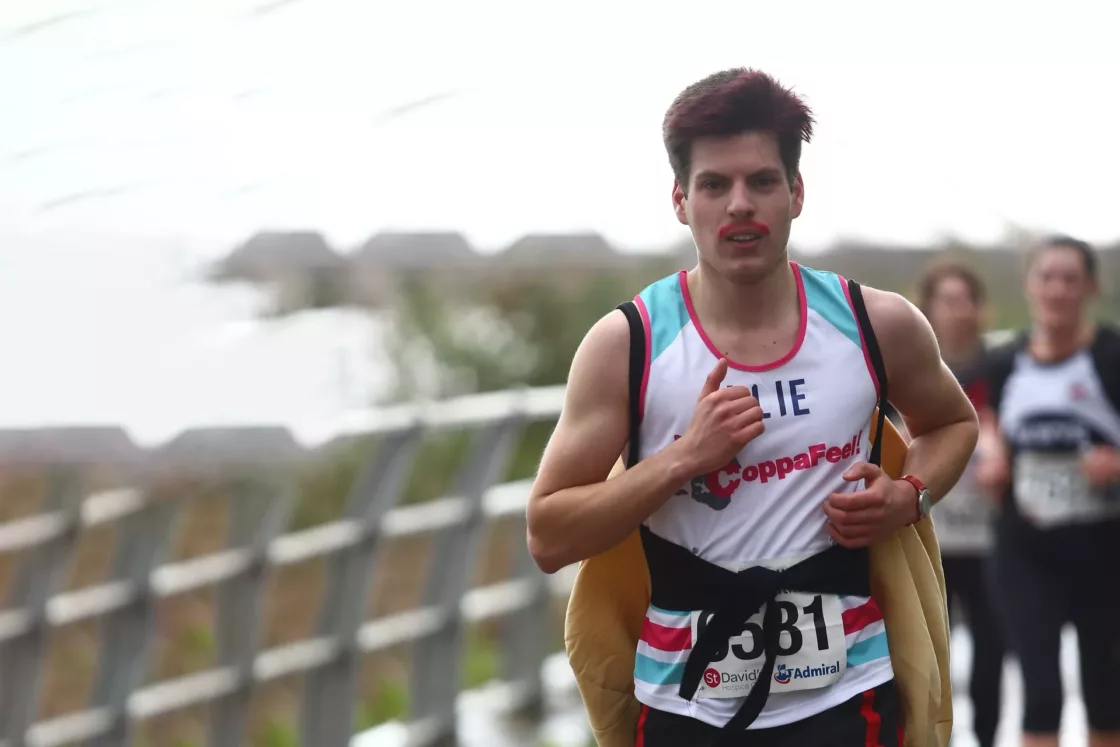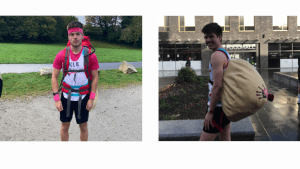
Ollie was 21 when, by chance, he found a lump in the shower, just after the Christmas holidays. Thinking it could have been a tight muscle, he attempted to loosen it, but it just became more painful, so Ollie went to the GP to get it checked. The GP immediately referred him to a breast cancer clinic – this was the first time breast cancer had even crossed Ollie’s mind – he was a young man and was unaware that breast cancer could affect him.
View this post on Instagram
At the breast cancer clinic, Ollie was checked by a nurse, and then another for a second opinion. He was told that it was gynecomastia (swollen breast tissue) which was nothing to worry about, and left feeling relieved. However, over the next few weeks the lump became more noticeable and more painful. After 4 weeks, Ollie decided to return to the doctor to have it looked at, and this time he was told he had DCIS (Ductal carcinoma in situ) – a type of non-invasive breast cancer.
Ollie left feeling confused as he had never heard of DCIS before and, until not long before, hadn’t been aware that breast cancer could affect all genders. Ollie found it difficult to navigate his diagnosis: although he had been diagnosed with a strain of cancer, he didn’t feel he had an understanding of what it meant.
DCIS isn’t life-threatening, but having DCIS can increase the risk of developing an invasive breast cancer later on. Ollie was given leaflets to help understand DCIS and was offered a treatment of medication that would take 3 months to reduce the lump. He went off to his placement with the air force.
During this time, Ollie was told to avoid contact sport which meant he could no longer play rugby. As an athletic person, Ollie found this difficult and felt self-conscious working out in the gym as the lump made one of his nipples more visible. Ollie’s friends also thought that breast cancer only affected women, and it was difficult to explain to his friends that he had DCIS. Through his sport, Ollie often found himself in very masculine environments and was embarrassed of his diagnosis. His peers sometimes teased him or commented negatively about DCIS which Ollie found surprising.
Despite the fact that he had been diagnosed with a strand of breast cancer, some men still teased him and considered it to be emasculating. Ollie found that he was often the only man in the clinic when he went for treatments, which could leave him feeling as if he was intruding.
A month later, the lump returned and Ollie was told that the medication may not work for him, so instead, he opted for an injection which would remove the affected tissue – this got rid of the lump within a week. Ollie had a mammogram before returning to uni for his third year, and was told that the lump had gone.
When Ollie was given some aftercare leaflets, he was introduced to CoppaFeel! and was told that it was a charity for young people. Since his diagnosis, Ollie found that his friends came to him if they had problems with their health. It made him realise that awareness needs to be raised to encourage young people to feel confident visiting their GP if something doesn’t seem right. A lot of branding and language around breast cancer can often be female-centered and Ollie felt that men needed to be made aware of their risk of breast cancer.
Ollie decided to raise awareness by getting his sports teams involved to wear pink and after university, he became the VP Activities at his university. In his role, he contacted CoppaFeel! to arrange an awareness campaign – he booked a Boobette talk and even ran a half marathon in a boob costume in aid of CoppaFeel!
